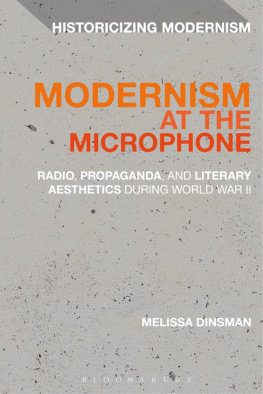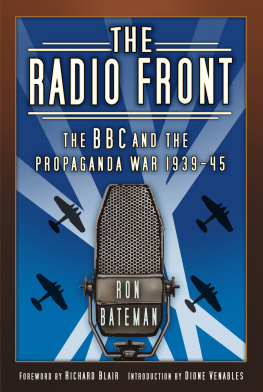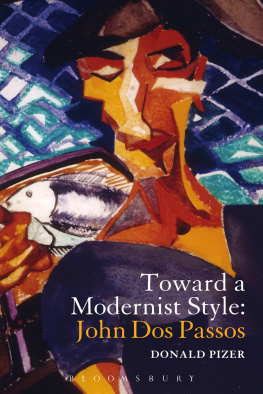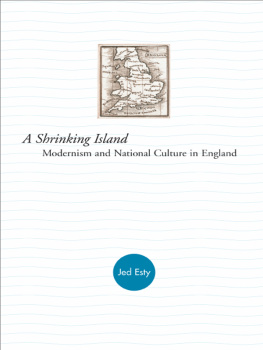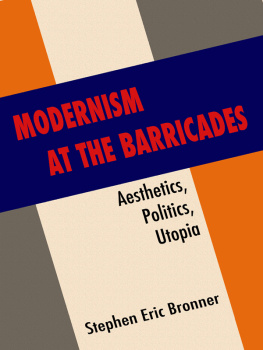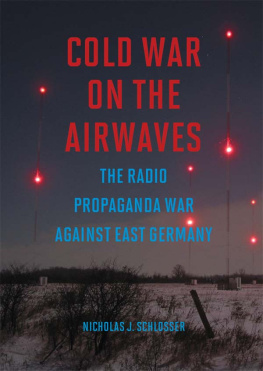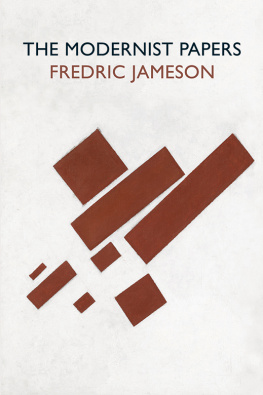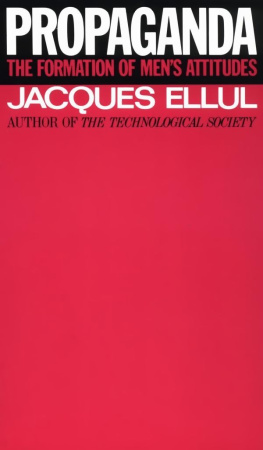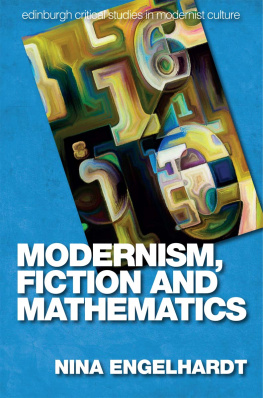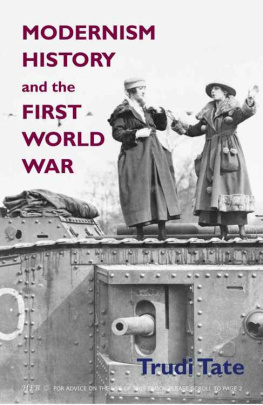Modernism at the Microphone
Historicizing Modernism
Series Editors
Matthew Feldman, Professor of Contemporary History, Teesside University, UK, and Erik Tonning, Professor of British Literature and Culture, University of Bergen, Norway
Assistant Editor: David Tucker, Postdoctoral Researcher, University of Chester, UK
Editorial Board
Professor Chris Ackerley, Department of English, University of Otago, New Zealand; Professor Ron Bush, St. Johns College, University of Oxford, UK; Dr Finn Fordham, Department of English, Royal Holloway, UK; Professor Steven Matthews, Department of English, University of Reading, UK; Dr Mark Nixon, Department of English, University of Reading, UK; Professor Shane Weller, Reader in Comparative Literature, University of Kent, UK; and Professor Janet Wilson, University of Northampton, UK.
Historicizing Modernism challenges traditional literary interpretations by taking an empirical approach to modernist writing: a direct response to new documentary sources made available over the last decade.
Informed by archival research, and working beyond the usual European/American avant-garde 190045 parameters, this series reassesses established readings of modernist writers by developing fresh views of intellectual contexts and working methods.
Series Titles
Arun Kolatkar and Literary Modernism in India, Laetitia Zecchini
British Literature and Classical Music, David Deutsch
Broadcasting in the Modernist Era, Matthew Feldman, Henry Mead, and Erik Tonning
Ezra Pounds Adams Cantos, David Ten Eyck
Ezra Pounds Eriugena, Mark Byron
Great War Modernisms and The New Age Magazine, Paul Jackson
Katherine Mansfield and Literary Modernism, edited by Janet Wilson, Gerri Kimber, and Susan Reid
Late Modernism and The English Intelligencer, Alex Latter
The Life and Work of Thomas MacGreevy, Susan Schreibman
Modern Manuscripts, Dirk Van Hulle
Reading Mina Loys Autobiographies, Sandeep Parmar
Reframing Yeats, Charles Ivan Armstrong
Samuel Beckett and Arnold Geulincx, David Tucker
Samuel Beckett and Science, Chris Ackerley
Samuel Beckett and The Bible, Iain Bailey
Samuel Becketts More Pricks Than Kicks, John Pilling
Samuel Becketts German Diaries 19361937, Mark Nixon
T.E. Hulme and the Ideological Politics of Early Modernism, Henry Mead
Virginia Woolfs Late Cultural Criticism, Alice Wood
Modernism at the Microphone
Radio, Propaganda, and Literary Aesthetics During World War II
Melissa Dinsman
Bloomsbury Academic
An imprint of Bloomsbury Publishing Plc

Bloomsbury Academic
An imprint of Bloomsbury Publishing Plc
50 Bedford Square | 1385 Broadway |
London | New York |
WC1B 3DP | NY 10018 |
UK | USA |
www.bloomsbury.com
BLOOMSBURY and the Diana logo are trademarks of Bloomsbury Publishing Plc
First published 2015
Melissa Dinsman, 2015
Melissa Dinsman has asserted her right under the Copyright, Designs and Patents Act, 1988, to be identified as Author of this work.
All rights reserved. No part of this publication may be reproduced or transmitted in any form or by any means, electronic or mechanical, including photocopying, recording, or any information storage or retrieval system, without prior permission in writing from the publishers.
No responsibility for loss caused to any individual or organization acting on or refraining from action as a result of the material in this publication can be accepted by Bloomsbury or the author.
British Library Cataloguing-in-Publication Data
A catalogue record for this book is available from the British Library.
ISBN: HB: 978-1-4725-9507-2
ePDF: 978-1-4725-9509-6
ePub: 978-1-4725-9508-9
Library of Congress Cataloging-in-Publication Data
A catalog record for this book is available from the Library of Congress.
Series: Historicizing Modernism
Typeset by Fakenham Prepress Solutions, Fakenham, Norfolk NR21 8NN
For Josh, Elijah, and Luke
Contents
This book series is devoted to the analysis of late nineteenth- to twentieth-century literary modernism within its historical context. Historicizing Modernism thus stresses empirical accuracy and the value of primary sources (such as letters, diaries, notes, drafts, marginalia, or other archival deposits) in developing monographs, scholarly editions, and edited collections on modernist authors and their texts. This may take a number of forms, such as manuscript study and annotated volumes; archival editions and genetic criticism; as well as mappings of interrelated historical milieus or ideas. To date, no book series has laid claim to this interdisciplinary, source-based territory for modern literature. Correspondingly, two burgeoning sub-disciplines of modernism, Beckett studies and Pound studies, feature heavily as exemplars of the opportunities presented by manuscript research more widely. While an additional range of canonical authors will be covered here, this series also highlights the centrality of supposedly minor or occluded figures, not least in helping to establish broader intellectual genealogies of modernist writing. Furthermore, while the series will be weighted towards the English-speaking world, studies of non-Anglophone modernists whose writings are ripe for archivally based exploration shall also be included.
A key aim of such historicizing is to reach beyond the familiar rhetoric of intellectual and artistic autonomy employed by many modernists and their critical commentators. Such rhetorical moves can and should themselves be historically situated and reintegrated into the complex continuum of individual literary practices. This emphasis upon the contested self-definitions of modernist writers, thinkers, and critics may, in turn, prompt various reconsiderations of the boundaries delimiting the concept modernism itself. Similarly, the very notion of historicizing Modernism remains debatable, and this series by no means discourages more theoretically informed approaches. On the contrary, the editors believe that the historical specificity encouraged by Historicizing Modernism may inspire a range of fundamental critiques along the way.
Matthew Feldman
Erik Tonning
Although a little-known historical anecdote, it is thought that the first wireless transmissions in the United States were sent from the University of Notre Dame to St. Marys Academy in April 1899. Traveling a mile in distance, this achievement by Professor Jerome Green and his assistants is also remarkable because the apparatus was made by Green and his colleagues, rather than using materials from Guglielmo Marconi. I highlight this forgotten moment in wireless history for a number of reasons. 1) It marks a concrete tether between radio broadcasting and academia; 2) It hints at the massive amount of historical and cultural recovery that still needs to be done within the academy with regard to radio; and 3) It signals the pre-war uses of radio and emphasizes both the human desire to communicate and the experimental nature of broadcasting, aspects with which this project is very much concerned. 4) It articulates a long, albeit largely forgotten, history between the University of Notre Dame and the radio, a history that in some small way connects this book (conceived of and written entirely while at Notre Dame) and the telegraphic history of the University.
Next page
